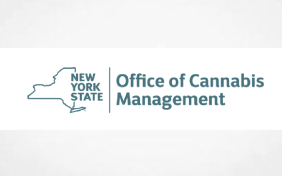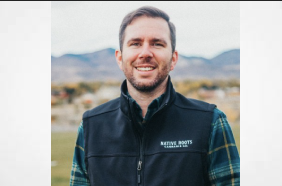By now, legalized cannabis is old news. Ten states allow recreational usage, 33 have medical marijuana and cannabis was legalized across all of Canada a few months ago. But in spite of all that, there’s still one very big taboo topic in all these jurisdictions: pot at work.
As the founder of a tech startup, I thought by now I’d be seeing cookie jars of bud popping up next to the beer fridge in office kitchens. After all, alcohol has long been an accepted (though not encouraged) part of the modern workplace. It makes sense that employers should see pot that way as well, right?
Not so. Despite the fact that nearly a quarter of North Americans say they use cannabis recreationally, and more are open to trying it as laws change, the majority of users still aren’t comfortable talking about it at work. That, no doubt, is the result of decades of fear-stoked social stigma. As a consequence, employers have responded to legalization by ignoring the issue altogether, or implementing top-down policies aimed at limiting liabilities. Some have even banned employees from consuming cannabis on their own time.
Certainly it’s not easy to navigate this shifting legal and cultural landscape as an employer. But ignoring the issue, or taking a super hard-line stance against it, not only risks alienating a sizable portion of your workforce, it’s increasingly leading to legal challenges.
I definitely don’t have all the answers, but as the CEO of an ecommerce agency in a jurisdiction where cannabis was recently legalized, I’ve realized there is middle ground to strike — and it starts with including your team in decisions around how to handle weed at work.
Get your team aligned around an internal policy.
Our office culture has always encouraged openness and mutual respect. This applies to everything from sharing weekend plans to voicing personal or professional challenges. As legalization approached, I knew we needed to talk about what that would mean for our workplace. Ahead of the laws changing, we held a town hall meeting to test the waters around cannabis tolerance in our office.
Admittedly, we’re a pretty liberal bunch. Even so, not everyone was on board with the idea of allowing cannabis in the workplace. Some people had concerns about the telltale pot smell, others about the effect on productivity. But starting the conversation at a high level gave everyone permission, and freedom, to air their feelings in a safe and non-judgmental space. We found that encouraging our team to talk about cannabis allowed people with opposing views to work out differences among themselves. They were able to voice their fears, suggest limitations and feel heard by the group.
In the end, we came up with a plan that reflected our values as a team: we treat cannabis the same way we treat alcohol. They’re both legal substances and when it came down to it, most people felt we should allow both or none at all. Basically, as long as it doesn’t harm anyone or interfere with their work, people can use cannabis, or alcohol, however they want.
To be clear: our office is not a free-for-all. We expect people to act responsibly like adults. But if it’s not a big deal for someone to crack a beer in the office at the end of the day, should it be an issue for someone else to step outside and smoke a joint? As long as people are not impaired at work, our feeling was no, not at all.
Set a pot protocol for dealing with customers and prospects.
Of course, as a millennial CEO, I realize my attitude around weed at work is likely more lax than older generations, and the tech industry tends to be more accepting of unorthodox policies than more conservative sectors.
As ecommerce consultants, what happens in our office isn’t necessarily anyone else’s business, as long as we’re acting legally and ethically. Still, I know our stance on cannabis has the potential to affect client relationships. We’re a digital company that works across borders and the varied, often vague, laws surrounding cannabis in different jurisdictions require an abundance of caution.
Cannabis remains illegal in most U.S. states, as well as federally, and there have been cases of cannabis professionals in Canada being banned from crossing the border. Given the moving target of cannabis legislation, our policies — internal and external — are likely to evolve overtime. But so too will our cultural understanding and tolerance.
For example, the increasing availability of cannabis in forms like edibles and oils will combat stigma by eliminating the signature smell that inevitably gives users away. And as we develop a more sophisticated understanding of the science around cannabis, we’ll be able to better address public safety concerns, like long-term health effects, or safe consumption limits for drivers.
In the meantime, however, cannabis as a workplace issue is here, now, and it will only become more pressing in the years ahead. Whether it’s accommodating those who use it for medical reasons or just for fun, employers have the power, and the responsibility, to create a culture where people don’t need to live in secrecy or shame.
Adapting to cannabis legalization is about finding a balance between professionalism, workplace safety and respecting the legal rights of adults that work for you. There’s no doubt it’s an ongoing process, but employers who put in the effort — and, importantly, include their teams in the conversation — will be ahead of the curve in creating a more honest, accepting culture, and consequently, a more engaged workforce.
An office where there’s a bowl full of pot gummies in the kitchen next to the craft beer? I’d allow my team to consider it.

















